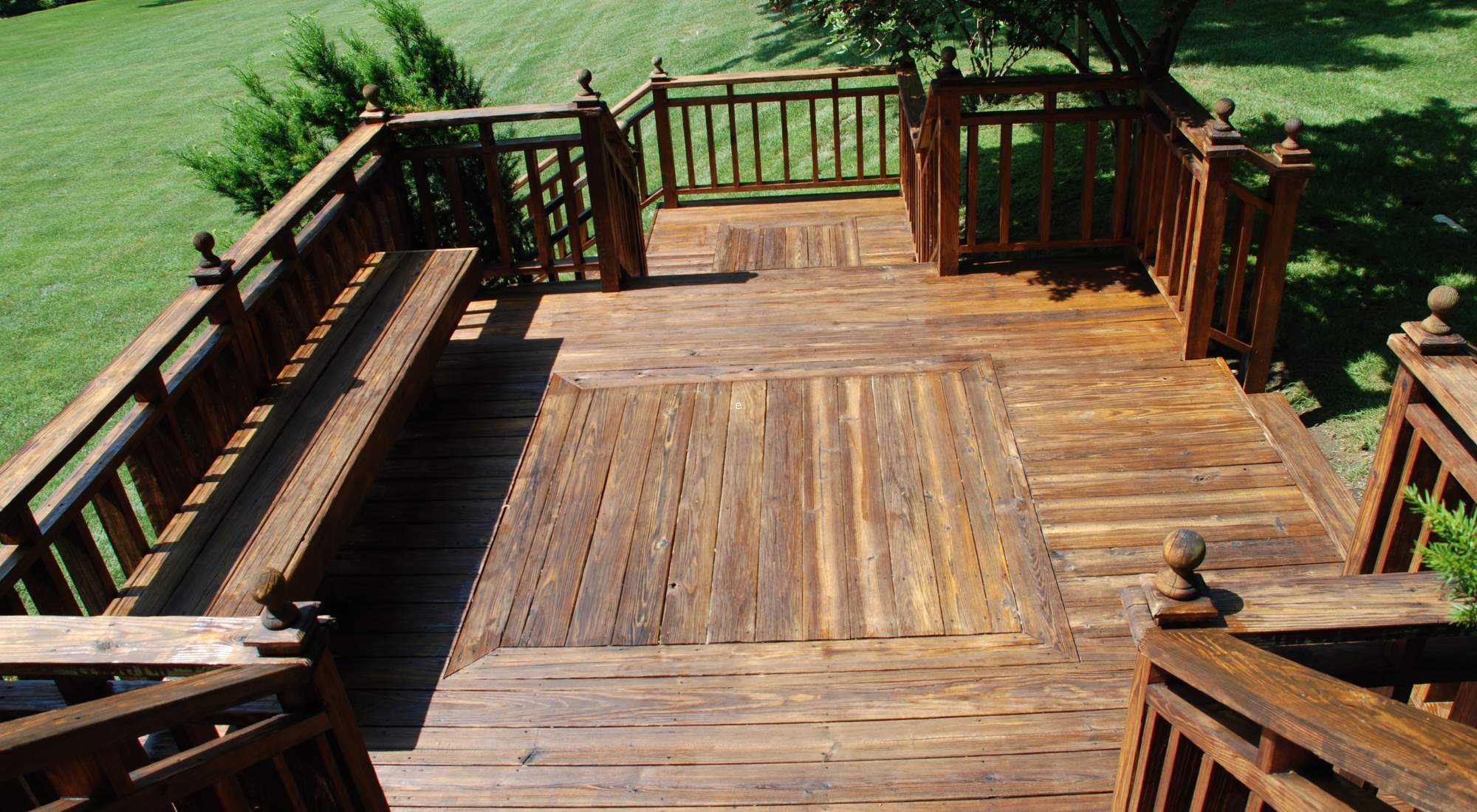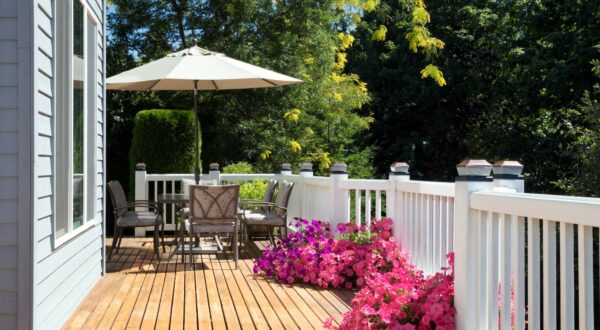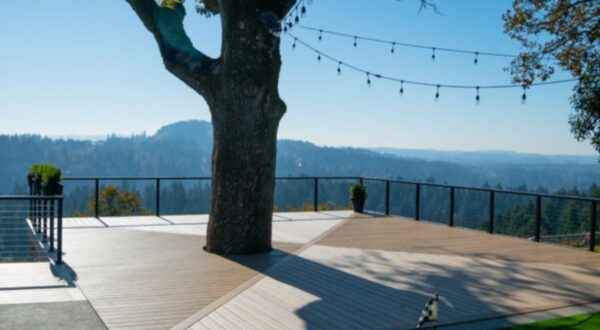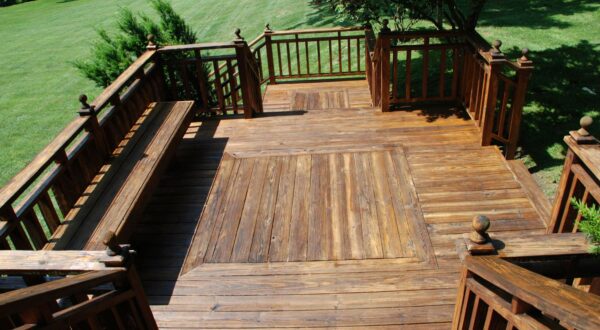What’s the Best Wood for Decks? Comparing the Options
May 24th, 2023 | by Jim Gates

When it comes to building your deck, choosing the right material is essential. Picking the wrong wood could lead to maintenance headaches down the road or — even worse! — an ugly deck.
With a variety of options available, it’s important to have the right info when determining the best wood for your deck project. Factors such as budget, performance, aesthetics, and maintenance all play a role in making the right choice.
In this article, we will explore different wood options, compare their qualities, and help you make an informed decision for your deck project.
Table of Contents
- What Are the Wood Options for Building a Deck?
- What’s the Best Wood To Use for Decks? It Depends on Your Wants & Needs
- Comparing the Best Type of Wood for Decks: 4 Options
- Understanding Why the Best Wood Isn’t Always Wood
- Three Rivers Custom Decks: Designing and Building Decks With Your Vision and Budget in Mind
What Are the Wood Options for Building a Deck?
There is a wide range of materials to choose from when building a deck. Here are some popular wood options:
- Softwoods: Softwoods like cedar and redwood are cost-effective choices. While they are affordable, they may not offer the same durability as other options.
- Hardwoods: Hardwoods such as Ipe, mahogany, and teak are known for their superior performance and natural beauty. These woods are more expensive but offer exceptional longevity and a luxurious appearance.
- Pressure-Treated Wood: Pressure-treated lumber, typically made from yellow pine or Douglas fir, is a budget-friendly option. However, it may require more maintenance and lacks the visual appeal of hardwoods.
- Composite Wood: Composite wood is a popular alternative to natural wood. It is made by blending wood fibers and plastic, resulting in a durable and low-maintenance material. Composite wood comes in various colors and styles, providing versatility in design.

What’s the Best Wood To Use for Decks? It Depends on Your Wants & Needs
Budget
If you are looking to keep the initial cost down and don’t mind a shorter lifespan and more maintenance requirements, softwoods like tight knot cedar or pressure-treated wood can be suitable options.
These woods are affordable but may not offer the same longevity as hardwoods or composite wood.
Performance
For those seeking exceptional performance and longevity, hardwoods such as Ipe stand out. Ipe is a Brazilian hardwood known for its durability and resistance to rot, insects, and weathering.
While hardwoods come with a higher price tag, they can last up to 50 years or more with proper care.
Aesthetics
Aesthetics play a significant role in deck selection. Hardwoods are often favored for their natural beauty and rich colors. However, it’s worth noting that hardwoods require regular maintenance, including staining and sealing, to preserve their appearance.
Alternatively, composite wood offers a wide range of colors and styles that mimic the look of natural wood without the same maintenance requirements.

Other Factors To Consider When Choosing the Best Wood for Your Deck
In addition to budget, performance, and aesthetics, there are other factors to consider when selecting the best wood for your deck:
- Location and Climate: Consider the climate and weather conditions in your area. Some woods may be better suited for humid or coastal environments, while others may be more resistant to extreme temperatures or moisture.
- Maintenance: Think about the level of maintenance you are willing to undertake. Hardwoods often require regular sealing and staining, while composite wood requires minimal maintenance.
- Elements and Durability: Assess how well the wood can withstand the elements, such as rain, snow, or intense heat. Look for wood options that offer good resistance to rot, decay, and insect damage.
- Lifestyle: Consider your lifestyle and how you plan to use the deck. If you entertain frequently or have children or pets, durability and slip resistance may be important factors to prioritize.
No matter what factors are most important to you, Three Rivers Custom Decks is here to help you build the exact deck to suit you and your home.
Comparing the Best Type of Wood for Decks: 4 Options
Choosing the best wood for your deck requires careful consideration of various factors. Let’s explore the qualities and characteristics of four common wood options.
#1: Softwoods
Softwoods, such as cedar and redwood, are popular choices for decking due to their affordability. These woods offer a natural beauty with warm tones that can enhance any outdoor space. However, it’s important to note that softwoods may not perform as well as hardwoods in terms of durability and longevity.
They are more susceptible to rot, decay, and insect damage and may require more frequent maintenance and refinishing to maintain their appearance. If you’re on a tight budget and don’t mind the additional upkeep, softwoods can be a suitable choice for short-term decking needs.
#2: Hardwoods
Hardwoods, including Ipe, mahogany, and teak, are renowned for their exceptional performance and stunning aesthetics. These woods offer unparalleled durability and resistance to rot, decay, and insect infestation.
They possess natural oils and dense fibers that contribute to their longevity, often lasting 50 years or more. Hardwoods also provide a luxurious look with rich colors and intricate grain patterns. However, the main drawback of hardwoods is their higher cost. If you prioritize durability and beauty and are willing to invest in a long-lasting deck, hardwoods are an excellent choice.

#3: Pressure-Treated Wood
Pressure-treated wood, typically made from yellow pine or Douglas fir, is a widely available and economical option for decking. The treatment process involves infusing chemicals into the wood, making it more resistant to rot, insects, and decay.
Pressure-treated wood is often used for structural components rather than visible decking surfaces due to its relatively plain appearance. However, it can be stained or painted to enhance its visual appeal.
While pressure-treated wood offers cost savings, it may require regular maintenance, such as periodic sealing or staining, to preserve its integrity and extend its lifespan.
#4: Composite Wood
Composite wood has gained popularity as a versatile and low-maintenance alternative to natural wood.
While not technically wood, composite decking combines wood fibers and plastic to create a durable and visually appealing material. The core of composite boards consists of a blend of wood fibers and plastic, which is then covered with a protective plastic shell.
Composite wood offers several advantages, including:
- Excellent resistance to rot, warping, splintering, and insect damage
- Easy to work with and highly customizable
- Availability in various colors and textures that mimic the look of natural wood
- Minimal maintenance requirements compared to traditional wood options.
Unlike wood, composite decking does not require staining, sealing, or regular refinishing, making it a convenient and long-lasting choice.
Understanding Why the Best Wood Isn’t Always Wood
While natural wood options have their merits, composite wood has emerged as a compelling alternative for many deck builders. Composite decking offers a range of benefits that make it an attractive choice.
- Durability and Longevity: Composite wood is highly resistant to the elements, including moisture, UV rays, and temperature fluctuations. It maintains its structural integrity and appearance over time, outperforming traditional wood options.
- Low Maintenance: Unlike natural wood decks that require regular upkeep, composite decking is virtually maintenance-free. It doesn’t require staining, sealing, or painting, saving both time and money in the long run.
- Aesthetics and Customization: Composite decking comes in various colors, finishes, and textures, allowing you to achieve the desired look for your deck. Whether you prefer a natural wood grain or a modern, sleek design, composite materials offer versatility.
Three Rivers Custom Decks: Designing and Building Decks With Your Vision and Budget in Mind
Three Rivers Custom Decks specializes in designing and building decks that align with your vision and budget.
Whether you prefer the natural beauty of wood or the low-maintenance convenience of composite decking, our experienced team will guide you in selecting the best option. We offer a range of wood choices, including cedar, redwood, hardwoods, and pressure-treated wood.
If you’re looking for durability and minimal upkeep, composite decking is a popular choice. With Three Rivers Custom Decks, you can trust us to bring your dream deck to life with exceptional quality and craftsmanship.
Contact Three Rivers Custom Decks today to start the process of transforming your outdoor space into the deck of your dreams.
